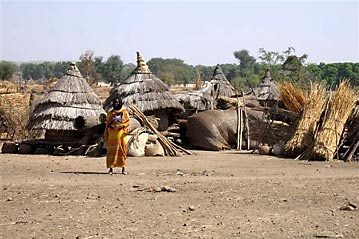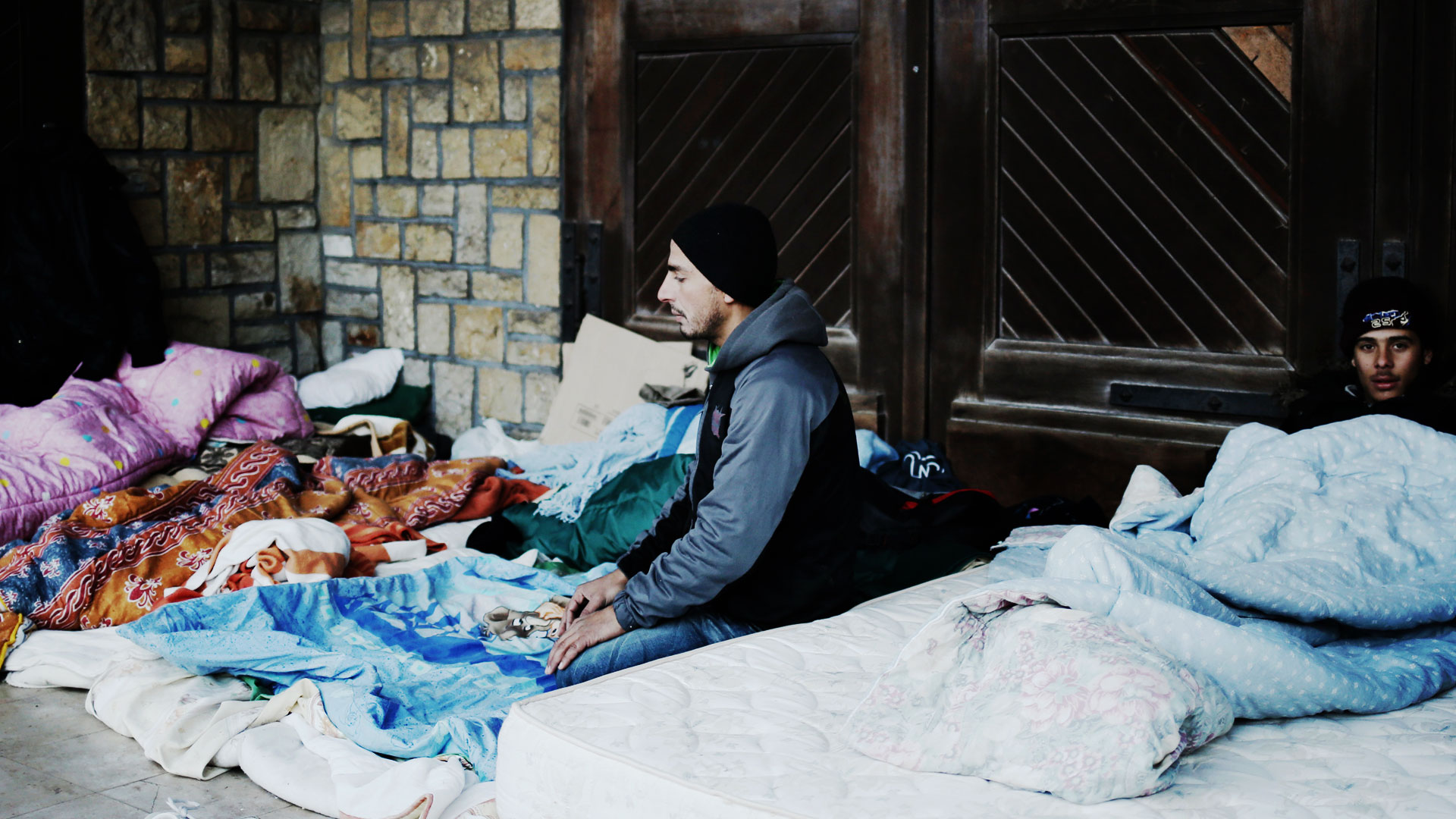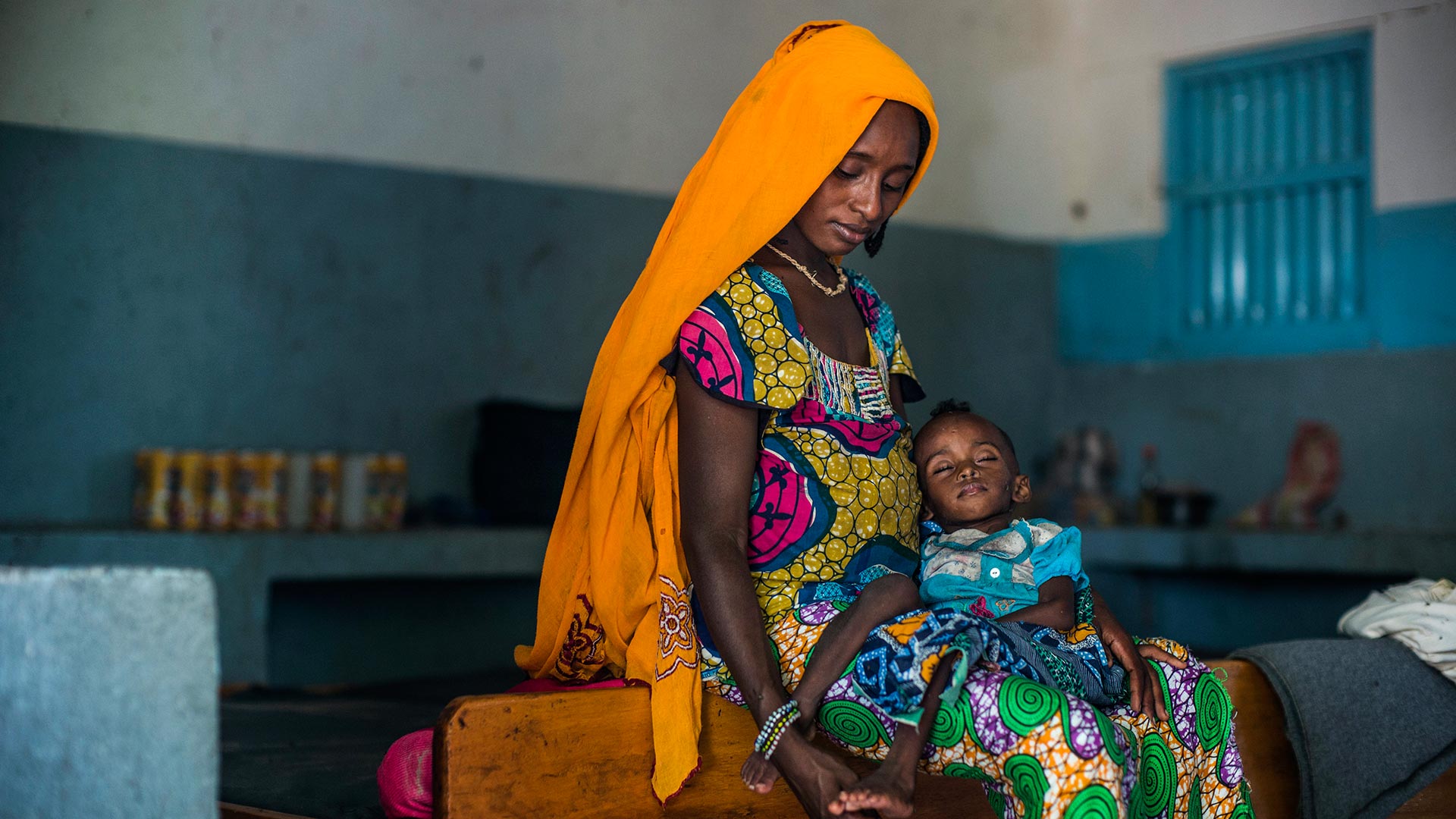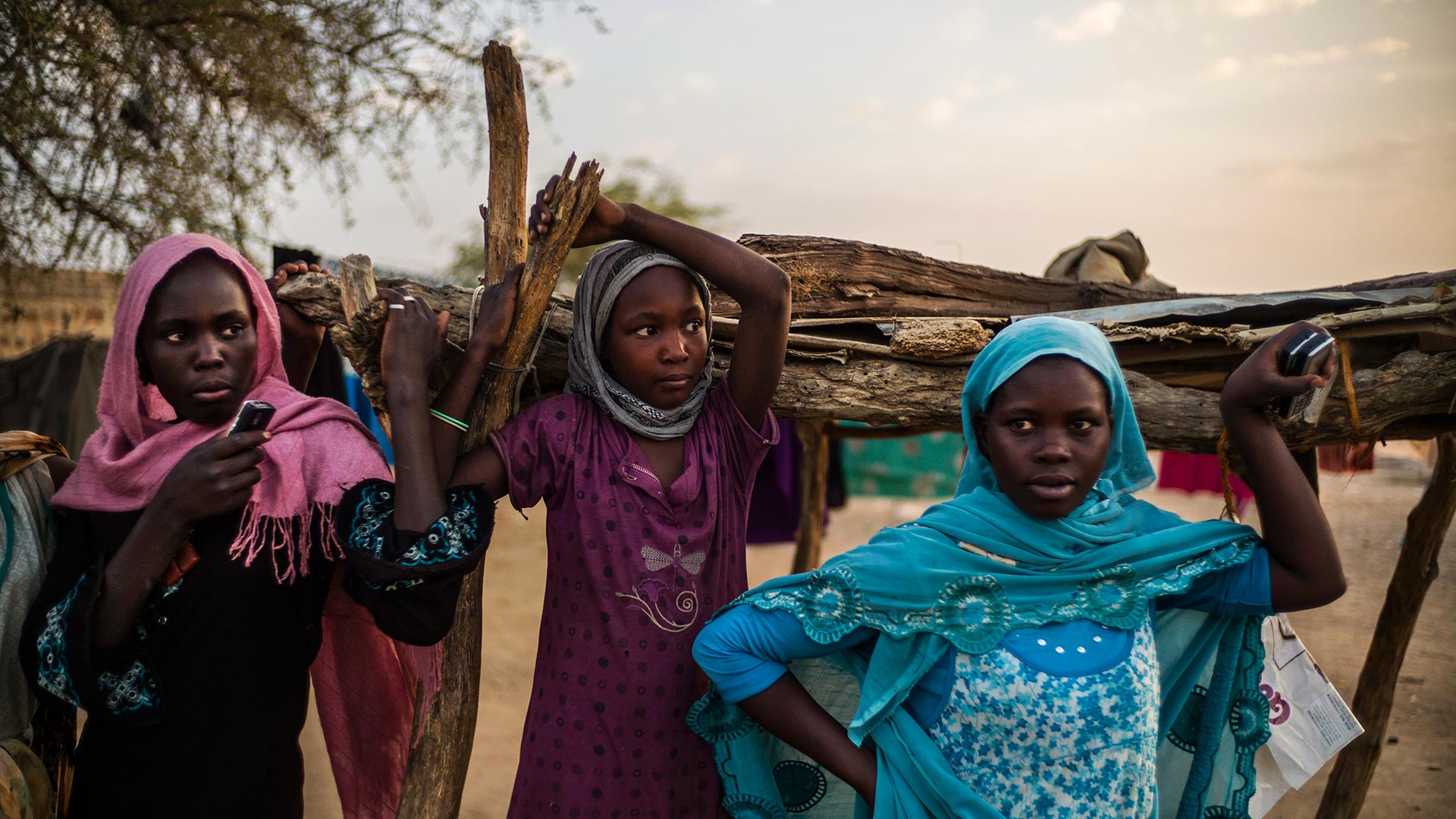Chadian refugees in Darfur moved from insecure border to a new camp
Chadian refugees in Darfur moved from insecure border to a new camp

UM SHALAYA, SUDAN, May 12 (UNHCR) - Despite delays caused by recalcitrant donkeys, the UN refugee agency managed Thursday to move nearly 500 Chadian refugees from unsafe areas along the Chad-Sudan border to a new refugee camp further inland in Sudan's West Darfur region.
A convoy of eight passenger trucks and one bus carried 494 Chadian refugees of Daju ethnicity from Habila, on the border, to Um Shalaya, south-east of El Geneina, capital of West Darfur. Three additional trucks carried the refugees' possessions and four trucks carried their donkeys.
The convoy left some three hours late because the donkeys could not be persuaded to board the trucks in an orderly manner, and the convoy took six and a half hours to cover the 60 km to the camp. The African Union provided a military escort for the journey.
"We are working together with the International Organization of Migration to transport refugees from their border locations to the new camp," UNHCR spokeswoman Jennifer Pagonis told journalists in Geneva. "We plan to move about 1,500 refugees per week to the camp in three separate convoys of about 500 people each."
The convoy was greeted at the camp by the camp manager, the umda (chief of a number of villages), local sheikhs and women who had prepared food as a welcome gesture.
As result of military action along the Chad-Sudan border, at least 13,000 Chadians have fled their homes and taken refuge inside Sudan since the beginning of the year.
Some 5,000 refugees settled temporarily in Habila, 95 km south of the West Darfur capital of El Geneina; of these, 3,700 have indicated they want to be relocated to the new camp at Um Shalaya, which can receive 10,000 people.
"Priority will be given to some of the recent arrivals, particularly children, who are suffering the ill effects of not getting enough to eat," Pagonis said. "Some 3,000 of the refugees at Habila are living in a wadi, or dry riverbed, with no clean water, no sanitation and no proper shelter."
The site for the Um Shalaya refugee camp was identified in collaboration with the Government of Sudan and is about 20 km north-east of Mornei, one of West Darfur's largest camps for internally displaced people.
Today, Friday, the refugees are being registered in the new camp by UNHCR and Sudan's Committee for Refugees. They receive kits to construct individual shelters, which should take two to three days. They also received enough food to last them one month. The camp has high-standard drinking water and a health clinic. Communal latrines have already been excavated in the transit area as well as the areas where refugees will construct their own homes.
In the camp, refugees are being allowed to group themselves, based on family and ethnic preferences; they are assigned plots in blocks of 12 households. The majority of these refugees are of Daju ethnicity, while others are Burgo and of Arab descent.
In addition to the refugees in Habila, there are some 6,000 to 8,000 refugees in the border area of Gelu, approximately 30 km. north-west of El Geneina, spread among five makeshift camps and 25 host communities.
"We plan to begin moving these refugees in two or three weeks, but we expect only about 30 percent of them will want to go to the camp because most of them are staying with relatives or fellow tribe members," Pagonis said in Geneva.
"We have received reports of new arrivals - perhaps as many as 7,000 people in total - in border areas, but we have not been able to reach them yet because of continuing insecurity along the border," she added.








